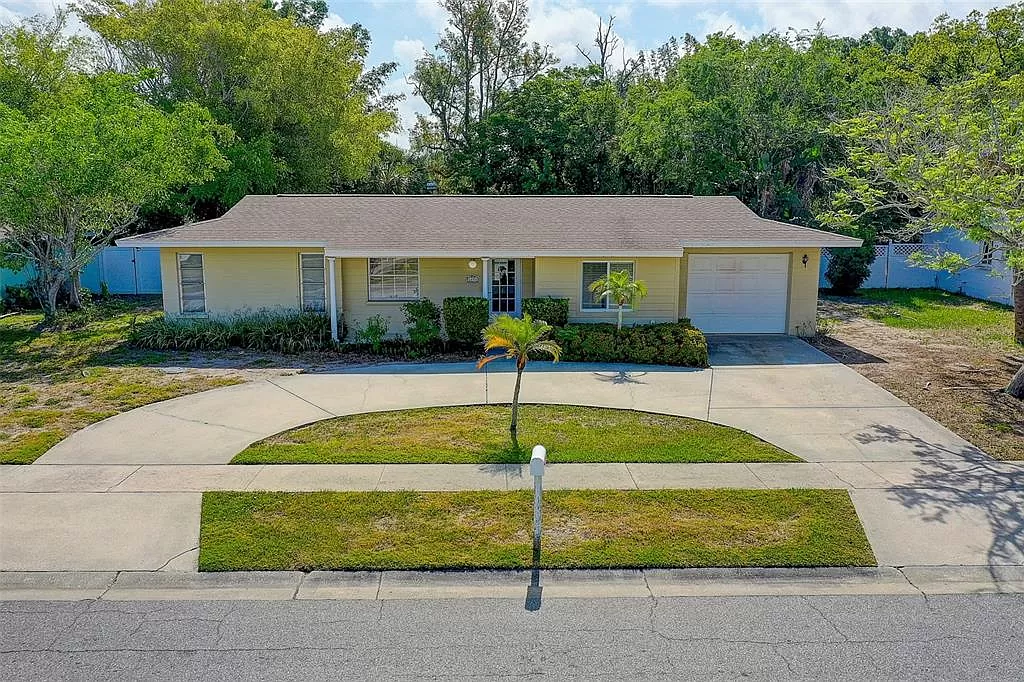Key Takeaways:
➡️ Property management companies streamline the process of owning and managing rental properties for foreign investors.
➡️ Property managers handle on-site responsibilities, saving investors time and reducing stress.
➡️ Choosing the right property management partner is key to protecting and growing your investment.
Investing in US real estate is an attractive opportunity for foreign nationals, offering steady rental income and long-term growth. However, owning property in another country comes with unique challenges, especially when it comes to handling tenants, maintaining the property, and staying compliant with US laws and tax requirements.
Managing an investment property remotely can become time-consuming and stressful, this is where property management becomes essential. It ensures that your property remains well-maintained, generates consistent rental income, and meets all legal obligations.
Table of Contents
How to Effectively Manage Properties Remotely
Managing a property from overseas may seem complex, but with the right approach, you can ensure smooth operations and maximize returns without being physically present. Here’s how you can effectively manage your US property remotely:
- Hire a Professional Property Management Company: A reliable property management firm handles tenant screening, rent collection, maintenance, and legal compliance, saving you time and effort.
- Utilize Property Management Software: Platforms like Buildium, AppFolio, and RentRedi allow you to monitor rental payments, maintenance requests, and financial reports from anywhere in the world.
- Set Up Automated Rent Collection & Payments: Automate rent collection and payments for property-related expenses to avoid delays and maintain cash flow.
- Conduct Regular Property Inspections: Schedule periodic inspections through your property manager or use virtual inspection services to ensure your property remains in good condition.
- Establish Clear Communication Channels: Keep an open line of communication with your property manager and tenants through email, video calls, or messaging apps for quick updates and issue resolution.
- Stay Compliant with Local Laws: Ensure your property complies with state and federal regulations, including tax obligations and landlord-tenant laws, to avoid potential legal issues.
While these strategies help investors manage their properties remotely, partnering with a professional property management company simplifies the process even further, ensuring seamless operations and compliance with US real estate laws.
What is a Property Management Company?
A property management company is a professional service provider that handles the day-to-day operations of rental properties on behalf of owners. For foreign investors, these companies play a crucial role in ensuring smooth property management without requiring direct involvement.
A property management company takes care of essential tasks such as tenant screening, rent collection, maintenance, legal compliance, and financial reporting. They act as intermediaries between property owners and tenants, ensuring that the property remains profitable while adhering to US real estate regulations.
Managing rental properties from overseas can be challenging, but with the right expertise and professional support, investors can maximize returns effortlessly. At HomeAbroad, we connect foreign investors with top property management companies to ensure their investments remain profitable and well-maintained.
Steven Glick, Director of Mortgage Sales at HomeAbroad
By hiring a property management company, foreign investors can enjoy a stress-free real estate experience, focusing on portfolio growth while professionals handle the complexities of property management.
What Foreign Investors Should Expect from a Property Management Company
Effective property management encompasses several essential aspects that help property owners ensure steady returns and compliance with legal requirements.
Here are the key components foreign investors expect from a professional property management company:
1. Tenant Screening and Lease Management
Finding reliable renters is critical for a profitable investment property. Property managers perform thorough background checks, verify financial stability, and verify rental history to make sure tenants are responsible. They also draft legally sound lease agreements, ensuring they meet all legal requirements.
2. Rent Collection and Financial Oversight
Property managers take care of collecting rent on time and following up on late payments. They provide regular financial reports, helping real estate investors track income, expenses, and any US tax-related details.
3. Property Maintenance
Property managers coordinate on-site maintenance, ensure routine inspections, handling repairs, and addressing renters’ maintenance requests. This ensures the property stays in top shape and reduces the risk of costly repairs.
4. Legal Compliance and Handling Disputes
Property managers ensure your property complies with local and federal regulations, such as safety codes and tenant rights. In case of disputes, like late payments or tenant issues, they manage the situation and take appropriate action.
5. Tax Management Assistance
Property managers assist foreign investors in understanding property taxes, depreciation benefits, and other tax-related aspects. They can also provide guidance on obtaining an Individual Taxpayer Identification Number (ITIN) to meet tax obligations.
By addressing these key components, professional property management companies ensure that foreign investors can focus on expanding their investment portfolio while enjoying steady cash flow and peace of mind.
Benefits of Hiring a Property Management Company for Foreign Nationals
For foreign nationals, hiring a property management company a range of benefits that can make owning US real estate a more profitable and stress-free experience:
1. Local Expertise
Property managers bring years of experience in managing real estate investments. Their expertise helps avoid costly mistakes, ensures compliance with local regulations, and keeps your property running smoothly.
2. Improved Cash Flow
Property managers ensure timely rent collection, reducing late payments and ensuring steady cash flow. They also focus on tenant satisfaction, which improves retention and minimizes vacancies.
3. Time and Stress Savings
Managing an investment property remotely can be time-consuming, especially if you have multiple properties or investments in different locations. Property managers take over day-to-day responsibilities, allowing investors to focus on personal priorities.
4. Risk Reduction and Legal Protection
Property management companies help mitigate risks by ensuring that your property complies with all local laws, including landlord-tenant laws and safety regulations. They also handle legal disputes, evictions, and other matters, reducing the likelihood of costly lawsuits.
5. Access to Reliable Contractors and Vendors
Property managers established relationships with trusted contractors, service providers, and maintenance personnel. This means that repairs and maintenance are handled efficiently and at competitive rates, ensuring your property is well-maintained without the hassle of finding reliable vendors.
By hiring a property management company, foreign investors can ensure their properties are well cared for, comply with regulations, and remain profitable, all while reducing the amount of time and effort required on their part.
How to Choose the Right Property Management Company
Selecting the right property management company is crucial for international investors to ensure their properties are managed effectively and profitably.
Here are key factors to consider when making your choice:
1. Experience in the Local Market
Look for a property management company with extensive experience in the area where your property is located. also look for companies having a proven track record in assisting non-US citizens with investment properties.
2. Range of Services Offered
Evaluate the services provided by the company. Ensure they cover essential tasks like tenant screening, rent collection, property maintenance, financial reporting, and legal compliance.
3. Transparency in Fees
Understand the fee structure before signing a contract. Property management companies typically charge a percentage of the monthly rental income or a flat fee. Make sure the costs align with the services provided, and there are no hidden charges.
4. Reputation and Reliability
Research the company’s reputation by reading online reviews, testimonials, and case studies. A well-established company with positive feedback from other investors is more likely to provide reliable service.
5. Communication and Technology
Effective communication is essential for managing properties remotely. Look for a company that provides regular updates and uses technology like online portals or apps for real-time access to financial reports, maintenance updates, and tenant interactions.
6. Licensing and Certifications
Verify that the company is licensed and has relevant certifications. This ensures they meet industry standards and have the expertise to manage your property professionally.
By carefully evaluating these factors, foreign investors can find a property management company that aligns with their needs, ensuring their investments are well-managed and profitable.
At HomeAbroad, we help foreign investors connect with experienced property management companies that specialize in working with international buyers. Whether you’re a seasoned investor or new to US real estate, our trusted partners ensure your properties are managed efficiently, generating consistent returns while keeping them in top condition.
Frequently Asked Questions
Do foreign investors need a property management company in the US?
While it’s not mandatory, hiring a property management company helps foreign investors handle tenant management, maintenance, rent collection, and legal compliance—making remote property ownership hassle-free.
Can a property management company help with tax obligations for foreign investors?
Yes, many property management companies assist foreign investors with understanding property taxes, obtaining an ITIN, and complying with US tax laws to ensure smooth financial management.
How much does a property manager cost?
Property management fees typically range from 8% to 12% of the monthly rental income, though some companies charge a flat fee. Additional costs may include leasing fees, maintenance expenses, and eviction handling. Fees vary based on location, services, and property type.























